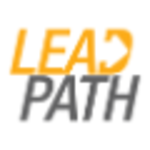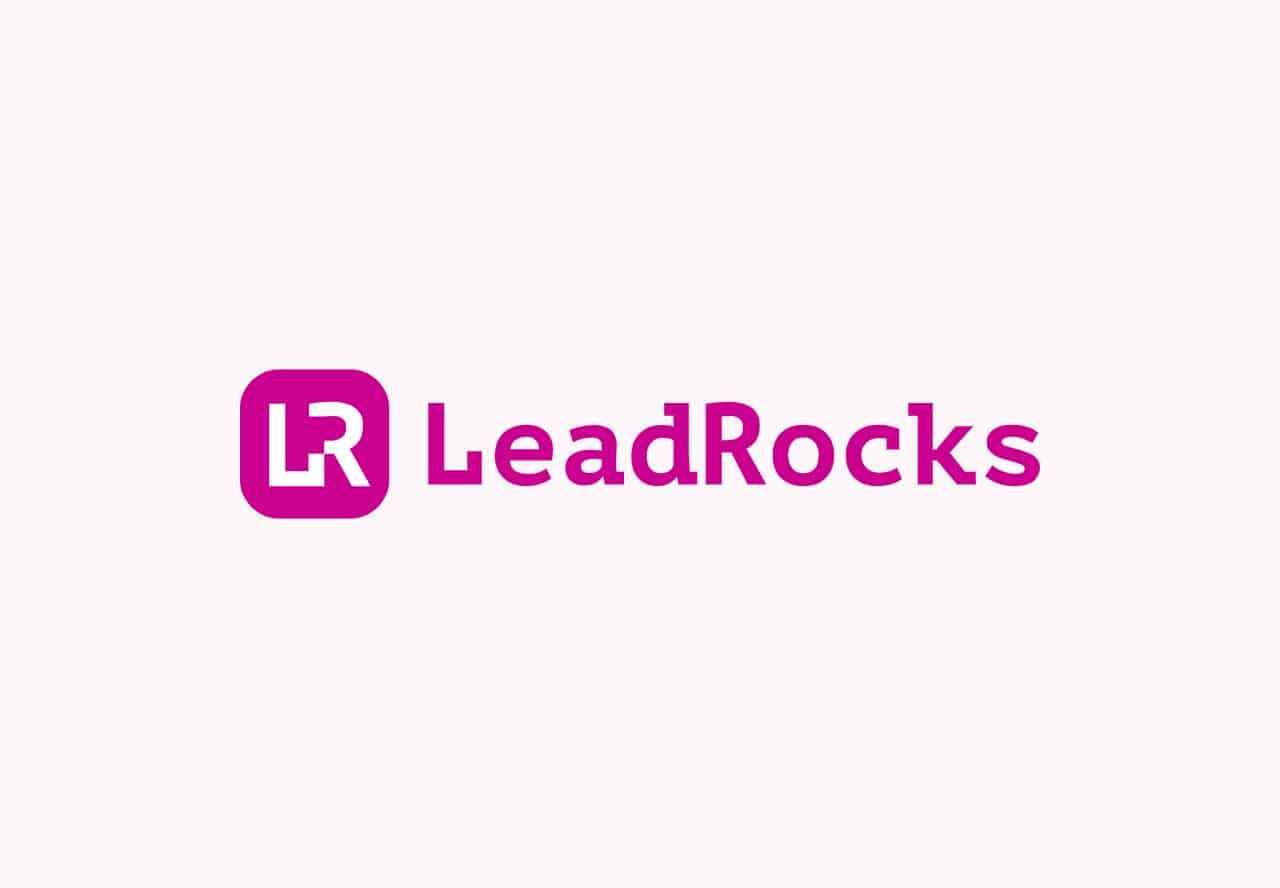Description

ProsperWorks CRM

LeadPath

LeadRocks
Comprehensive Overview: ProsperWorks CRM vs LeadPath vs LeadRocks
Overview of ProsperWorks CRM, LeadPath, and LeadRocks:
ProsperWorks CRM (Now called Copper)
a) Primary Functions and Target Markets:
- Primary Functions: Copper (formerly ProsperWorks) is a CRM platform designed to seamlessly integrate with Google Workspace (formerly G Suite). Key functions include contact and lead management, sales tracking, opportunity management, reporting, and automation features. It emphasizes ease of use and minimal setup, allowing users to manage relationships and track sales directly from their Gmail interface.
- Target Markets: Copper primarily targets small to medium-sized businesses (SMBs) that extensively use Google Workspace. It’s marketed towards industries that require a simple and intuitive CRM solution without the complexity of more extensive CRM systems.
b) Market Share and User Base:
- As a niche CRM, Copper doesn't command a significant share of the CRM market dominated by giants like Salesforce and HubSpot. However, its tight integration with Google Workspace gives it a dedicated user base within businesses that rely heavily on Google's ecosystem.
c) Key Differentiating Factors:
- Seamless integration with Google Workspace, allowing users to manage CRM tasks directly from Gmail.
- User-friendly interface and ease of use aimed at minimizing the learning curve compared to more complex CRM solutions.
- Automation capabilities designed to streamline workflows within Google apps.
LeadPath
a) Primary Functions and Target Markets:
- Primary Functions: LeadPath is a lead capture and management platform that focuses on lead conversion optimization. It offers features like customizable web forms, lead distribution, real-time lead alerts, analytics, and workflow automation to manage and nurture leads effectively.
- Target Markets: LeadPath is aimed at businesses that require robust lead management and conversion tools, ranging from small enterprises to medium-sized firms across various industries.
b) Market Share and User Base:
- LeadPath is considered more niche within the broader lead management software category. Its focus on lead conversion optimization attracts specific businesses looking to improve their lead-to-sale processes.
c) Key Differentiating Factors:
- Specializes in lead capture and conversion, providing advanced tools for optimizing lead conversion rates.
- Strong analytics and reporting features to measure the effectiveness of lead generation strategies.
- Highly customizable web forms and landing pages to fit the branding needs of different businesses.
LeadRocks
a) Primary Functions and Target Markets:
- Primary Functions: LeadRocks is a lead generation and sales prospecting tool designed to help businesses find contact details of potential leads. Features include a comprehensive database of prospects, data enrichment, and integration with email outreach tools to facilitate sales and marketing campaigns.
- Target Markets: It targets sales and marketing teams, predominantly in B2B sectors, who require efficient ways to build and manage prospect lists.
b) Market Share and User Base:
- LeadRocks operates in a competitive lead generation market with various similar solutions available. Its attractiveness depends on the density and accuracy of its database and how well it integrates with other sales tools.
c) Key Differentiating Factors:
- Comprehensive prospect database offering extensive contact details for business development.
- Data enrichment to enhance lead information, crucial for targeted outreach.
- Integration capabilities with outreach platforms to streamline sales outreach processes.
Comparative Analysis:
- Integration and Usability: Copper excels with its Google Workspace integration, appealing to businesses already invested in that ecosystem. LeadPath focuses on lead conversion and analytics, whereas LeadRocks provides a deep database and data enrichment focused on lead generation.
- Market Focus: Copper targets small to medium businesses favoring simplicity and integration. LeadPath is tailored towards companies seeking to maximize their lead conversion processes, while LeadRocks is ideal for B2B entities focused on building robust lead prospecting systems.
- Market Position: None of the three commands a top-tier market share compared to major CRM platforms, but they serve niche markets with specific demands. Copper stands out for integration, LeadPath for conversion optimization, and LeadRocks for prospecting depth.
Each product provides tailored solutions that cater to specific business needs within the CRM and lead management fields, making them viable options depending on a company's particular requirements and ecosystem preferences.
Contact Info

Year founded :
Not Available
Not Available
Not Available
Not Available
Not Available

Year founded :
2015
+1 312-219-9660
Not Available
United States
http://www.linkedin.com/company/leadpath

Year founded :
Not Available
Not Available
Not Available
Not Available
Not Available
Feature Similarity Breakdown: ProsperWorks CRM, LeadPath, LeadRocks
To provide a comprehensive feature similarity breakdown for ProsperWorks CRM (now known as Copper), LeadPath, and LeadRocks, it's important to analyze each platform within the context of CRM functionalities, lead management, and unique offerings. Here's a detailed comparison:
a) Core Features in Common
-
Contact Management:
- All three platforms offer robust contact management capabilities, allowing users to store and organize contact information efficiently.
-
Lead Tracking:
- ProsperWorks (Copper), LeadPath, and LeadRocks provide lead tracking features to help users manage, track, and nurture leads through the sales pipeline.
-
Integration Capabilities:
- Each of these tools supports integration with other software platforms, such as email services, marketing tools, and other CRM systems, to streamline workflows and data management.
-
Automated Workflows:
- Automated workflows are a key feature in each platform, facilitating processes like lead capture, data entry, and follow-ups.
-
Analytics and Reporting:
- Users can access various analytics and reporting features that offer insights into sales performance, lead progression, and overall CRM efficiency.
b) User Interface Comparison
-
ProsperWorks (Copper):
- The UI for Copper is known for its intuitive, user-friendly design tailored closely to match the Google's material design principles. It features clear visual aids, easy navigation, and seamless integration with Google Workspace, making it particularly attractive for users already invested in the Google ecosystem.
-
LeadPath:
- LeadPath's interface is also quite intuitive, though it might lean more towards a minimalist design. It emphasizes easy lead capture and management, with dashboards and menus designed for straightforward navigation without overwhelming users with options.
-
LeadRocks:
- LeadRocks focuses on a simple but effective UI that prioritizes lead generation and data organization. Known for its straightforward approach, it may not have the same polished aesthetic as Copper but compensates with quick accessibility to core features.
c) Unique Features
-
ProsperWorks (Copper):
- Google Workspace Integration: Copper stands out with its deep integration with Google Workspace, allowing users to operate entirely within Gmail, which can greatly enhance productivity for organizations using Google's tools.
- Native G Suite Experience: Its native experience for G Suite users simplifies the learning curve for teams familiar with Google's interface.
-
LeadPath:
- Dynamic Lead Capture: LeadPath is often praised for its advanced lead capture forms and dynamic scoring capabilities, which help users prioritize leads effectively.
- Customizable Landing Pages: Offers unique customization options for landing pages directly from the platform.
-
LeadRocks:
- Lead Database Access: LeadRocks provides access to an extensive lead database, which is particularly valuable for businesses focused on outbound lead generation.
- Prospecting Tools: It includes advanced prospecting tools designed to automate the process of finding and reaching out to potential leads.
Each platform has its strengths and areas where it may offer better functionality based on a company's specific requirements, especially when it comes to integrations and specific use-case optimizations.
Features

Not Available

Not Available

Not Available
Best Fit Use Cases: ProsperWorks CRM, LeadPath, LeadRocks
When evaluating CRM and lead management solutions like ProsperWorks (now known as Copper CRM), LeadPath, and LeadRocks, it's important to consider their unique features and ideal use cases. Here's an overview of their best fit scenarios:
a) Copper CRM (formerly ProsperWorks)
Best Fit Use Cases:
- Integration with Google Workspace: Copper CRM is specifically built to integrate seamlessly with Google Workspace (formerly G Suite), making it ideal for businesses heavily reliant on these tools for email, calendar, and document management.
- Small to Medium-Sized Enterprises (SMEs): It is particularly well-suited for small to medium-sized enterprises looking for a user-friendly CRM that doesn't require extensive setup or technical expertise.
- Relationship-Driven Sales: Companies that focus on building and managing customer relationships, rather than transactional sales, will find Copper’s features aligned with their needs.
- Technology and SaaS Companies: These types of businesses often leverage Google's ecosystem, making Copper a natural fit.
b) LeadPath
Preferred Scenarios:
- Lead Management and Distribution: LeadPath excels in scenarios where businesses need robust lead capture, distribution, and tracking capabilities. It is suitable for managing and routing sales leads to the right representatives or teams.
- Marketing Agencies and Sales Teams: Ideal for organizations that generate a high volume of leads and need to distribute them quickly and efficiently to their sales or client services teams.
- Customizable Lead Forms and Landing Pages: Companies looking for customizable lead capture forms and landing page solutions will find LeadPath’s offerings beneficial.
- Short Sales Cycles: Businesses with short sales cycles can leverage LeadPath’s capabilities to ensure leads are distributed and responded to in a timely manner.
c) LeadRocks
Consideration Scenarios:
- B2B Lead Generation: LeadRocks is particularly suitable for B2B companies focusing on outbound lead generation. Its database of business contacts can be a valuable resource for sales teams looking to expand their outreach efforts.
- Small Sales Teams and Startups: Given its relatively straightforward lead generation capabilities, smaller sales teams and startups can leverage LeadRocks without needing extensive technical resources.
- Data-Enriched Prospecting: When businesses require data-driven insights to enrich their prospecting efforts, LeadRocks’ databases can provide a significant advantage.
- International Reach: Companies looking to reach out to leads across various geographies might find LeadRocks’ extensive contact information useful.
d) Industry Verticals and Company Sizes
Copper CRM (formerly ProsperWorks):
- Industry Verticals: Tech companies, SaaS, service-based businesses, and any industry heavily relying on Google Workspace.
- Company Sizes: Primarily small to medium-sized enterprises, though large companies using Google’s ecosystem might also benefit.
LeadPath:
- Industry Verticals: Marketing agencies, real estate, automotive, and industries with high lead volumes needing quick distribution.
- Company Sizes: More flexible, suitable for small to mid-sized companies looking to optimize their lead distribution process.
LeadRocks:
- Industry Verticals: B2B companies across various sectors including tech, consulting, and services.
- Company Sizes: Small teams and startups looking to enhance their outbound lead generation efforts with enriched contact data.
Each of these tools caters to different needs based on company size, industry vertical, and specific use cases related to CRM and lead management solutions. Depending on the specific business requirements and existing tech stack, companies can select the product that best aligns with their strategic objectives.
Pricing

Pricing Not Available

Pricing Not Available

Pricing Not Available
Metrics History
Metrics History
Comparing undefined across companies
Conclusion & Final Verdict: ProsperWorks CRM vs LeadPath vs LeadRocks
To provide a conclusion and final verdict for ProsperWorks CRM (now known as Copper), LeadPath, and LeadRocks, we need to consider the specific features, pricing structures, user experience, and target audience for each product. Below is a detailed analysis to help determine which product offers the best overall value, along with the pros and cons of each, and specific recommendations for potential users.
a) Best Overall Value
Copper (formerly ProsperWorks CRM): Copper is specifically designed to integrate seamlessly with Google Workspace, making it an excellent choice for businesses already using Google's suite of tools. It is user-friendly, provides robust CRM functionalities, and is ideal for small to medium-sized teams looking for easy integration.
LeadPath: LeadPath is a lead management platform focused on capturing, tracking, and managing leads from various channels. It may offer superior value to businesses with complex lead generation needs but lacks the full-fledged CRM capabilities.
LeadRocks: LeadRocks focuses more on lead generation and sales prospecting, providing high-quality lead databases. It is often more cost-effective for users who primarily need lead generation without the ancillary CRM features.
Best Overall Value: Considering all factors, Copper offers the best overall value for companies looking for a comprehensive CRM solution that integrates with their existing Google Workspace. Its user-friendly interface, strong customer support, and seamless integration with widely used productivity tools make it a superior choice for holistic CRM needs.
b) Pros and Cons
Copper:
-
Pros:
- Seamless Google Workspace integration.
- User-friendly and intuitive design.
- Comprehensive CRM features including task automation, email tracking, and contact management.
- Strong customer support and onboarding.
-
Cons:
- Can be slightly more expensive compared to niche lead generation tools.
- Limited functionality outside of the Google Workspace ecosystem.
LeadPath:
-
Pros:
- Strong functionality in lead capturing and tracking.
- Effective lead management and scoring capabilities.
- Customizable lead forms and workflow automation.
-
Cons:
- Limited CRM features, making it less suitable for users needing extensive customer relationship management.
- Not as visually intuitive as some CRM-focused platforms.
LeadRocks:
-
Pros:
- High-quality lead databases and prospecting tools.
- Cost-effective option for pure lead generation needs.
- Streamlined interface for lead list building.
-
Cons:
- Lacks CRM functionalities beyond basic lead collection.
- Limited integration options with other tools, affecting workflow automation.
c) Recommendations
-
For users heavily relying on Google Workspace: Copper would be the most efficient choice due to its native integration with Google's tools, simplifying communication and collaboration.
-
For businesses with advanced lead capturing needs: LeadPath could be the best fit if their primary focus is on managing and optimizing lead flow without the need for full CRM capabilities.
-
For those focusing on cost-effective lead generation and prospecting: LeadRocks is ideal for users who require a simple, effective lead generation tool without the complexities of CRM systems.
Ultimately, the decision hinges on specific business needs, existing technological ecosystems, and budget constraints. Each product offers unique strengths, and selecting the best fit will depend on whether the primary goal is CRM, comprehensive lead management, or prospecting.